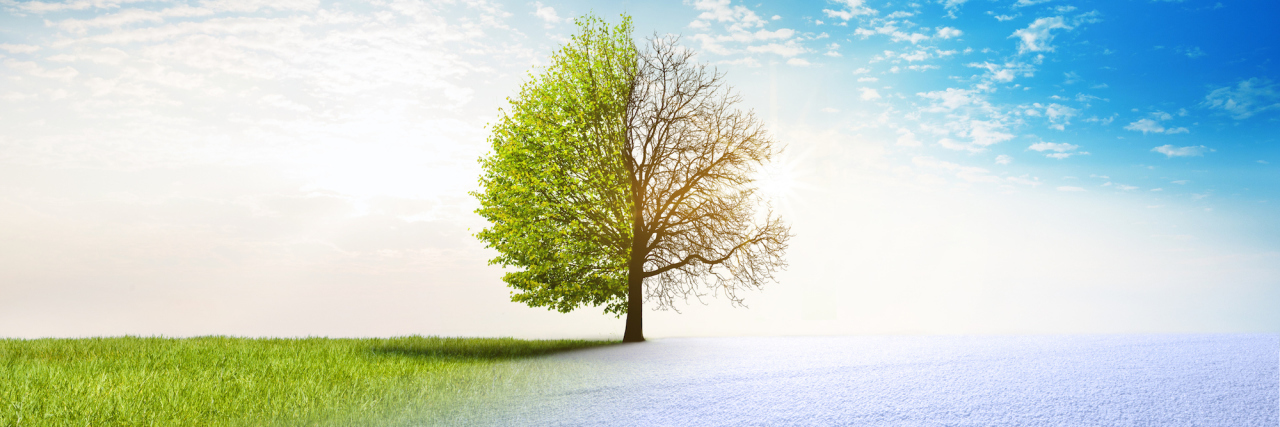Grappling With 'After' While Grieving the Death of My Adult Child
A friend sent me a text message, “Is group tonight? I am having a tough day. It is the 11 month anniversary of the death of my daughter.” I read her message after yoga class and called her back on the way home. We try to be each other’s consoling partners. Both of our adult children recently died from mental illness.
The usual grief support group meeting we attend is taking a break, and we were exploring alternatives. We decided for that night we would be each other’s support group and continued our conversation.
I am sure our conversation started something like, “Bad day?”
“Me too. Have you tried yoga to relieve the stress in your muscles? How about a massage?”
My body hurts every day. The first year after his death, the pain resided in the pit of my stomach like I swallowed a watermelon and a twenty-pound weight was compressing my heart and lungs. My legs felt heavy as I would walk up the stairs each night to go through the ritual of lying in bed awake for hours, until I eventually gave in to taking a prescribed sleep aid.
Nowadays, the pain has moved out of my chest and to my shoulders, neck and arms. My friend relays she scheduled a massage. We are supposed to be gentle to ourselves, so I give her encouragement for thinking of herself. I sign up for a foam rolling class.
We move on to another subject. I share I am reading the memoir “Everything Is Horrible and Wonderful.” I explain the premise of the book, a sibling writing about her life, and the death of her only sibling from addiction.
These days I read memoirs on grief and loss because I am looking for perspectives from people like me, experiencing a traumatic loss that changes any semblance of the life you had and vision for the future. I consider them as supplemental reading to my support group.
After sharing the synopsis of the book, I say, “I have not gotten to the wonderful part yet,” and we both break out cynically laughing, because life is no longer wonderful. Initially, I meant that part of the book, but then I realized I was talking about myself. I am very much living in the horrible period of life. My life is in two pieces. There is the before my son died, and then after.
In retrospect, I think the author meant wonderful is her brother, the memories with him and the impact he had on her and on society, as he was a famous comedic writer and actor. For me, it is our family when the four of us were together — my son, daughter and their father. I contemplate, is wonderful gone forever?
It seems like yesterday when he was here, yet an eternity. It has been 19 months since his death. He was a part of my life for nearly 24 years. It is too early to say what life will be like for the three of us, other than I wake up thinking about him every day. At night the routine of watching the Late Show with Steven Colbert helps my brain settle until the sleep aid kicks in. Most hours in-between are irrelevant.
The three of us have done some things to move life forward. My daughter is continuing her academic education; it has not been easy considering the circumstances. We bought a piece of property along Lake Superior as a sanctuary. We are enjoying the property as we prepare to build a home. We even camp, which I said I would never do again. We raise money for grassroots programs supporting mental illness. I also returned to running.
I pay someone to clean my house once a month, something I previously refused to consider. My husband hires the lawn mowing out. I work from home and rarely wear makeup anymore. What we do for dinner is dependent on whether going out requires wearing makeup, so we do more take-out. I walk our 90-pound yellow Labrador in the middle of the workday, because I cannot sit still through a typical workday.
Life is not wonderful; it is different.
Follow this journey on A Mother Who Lost Her Child
Getty image by by-studio

